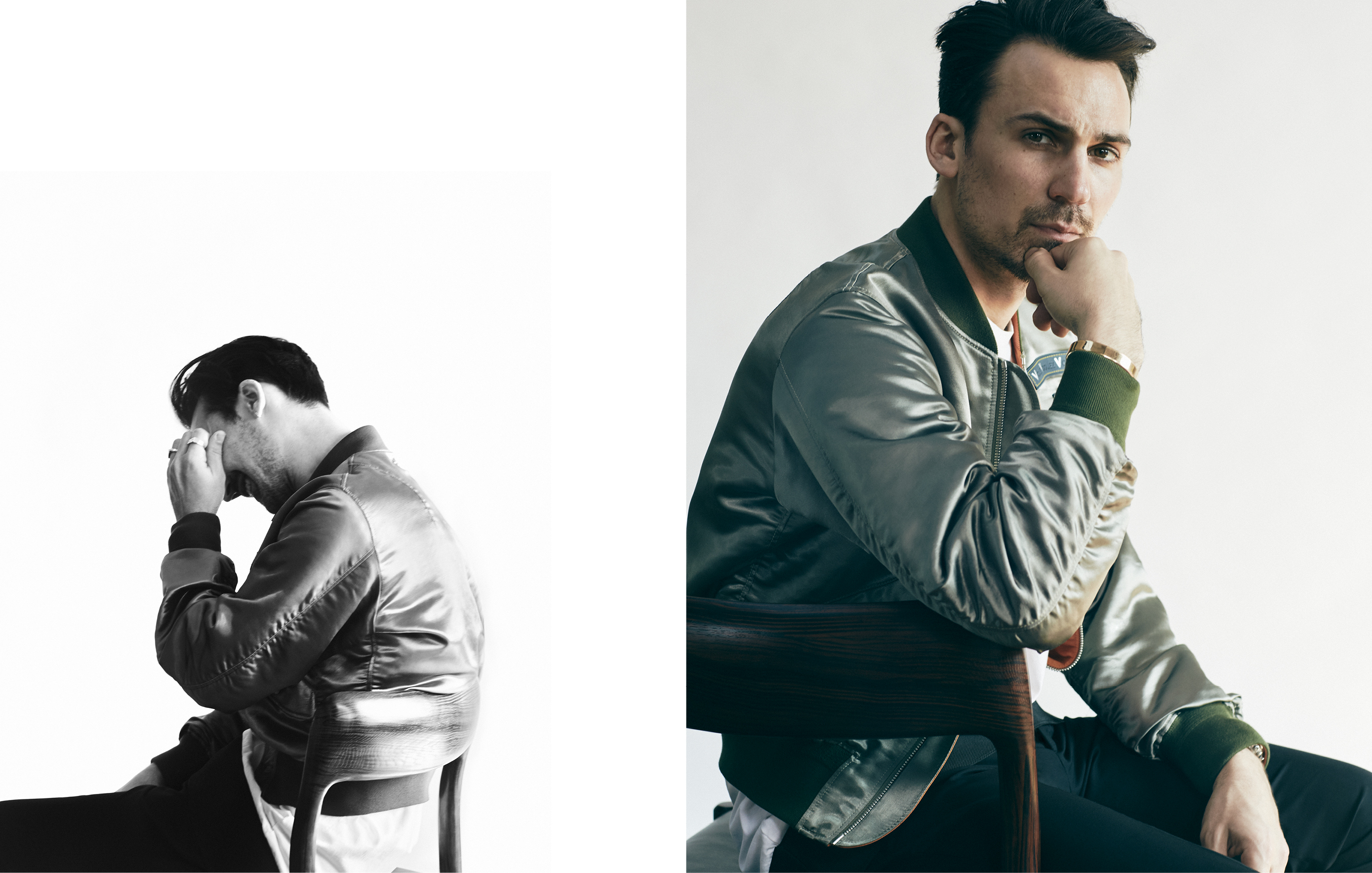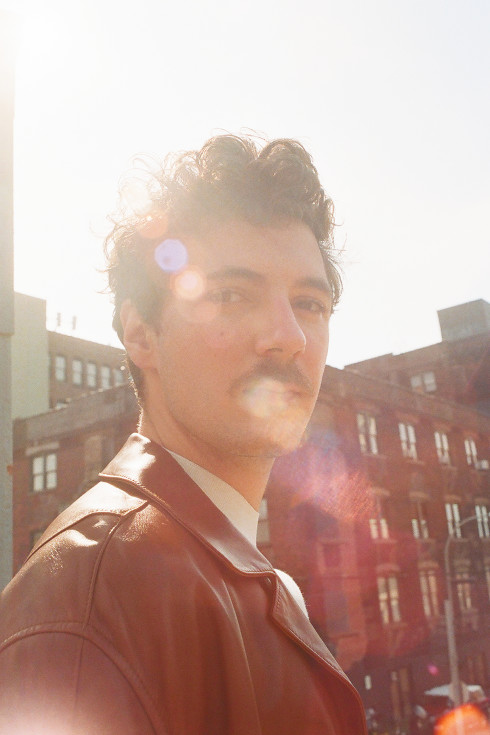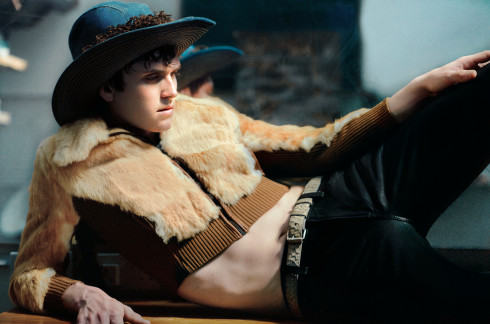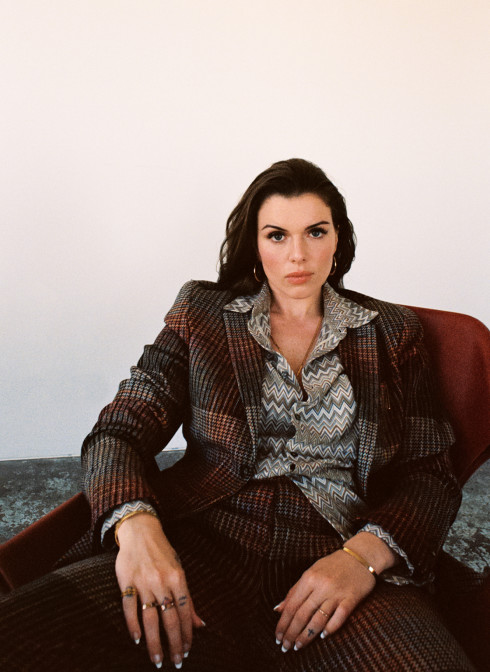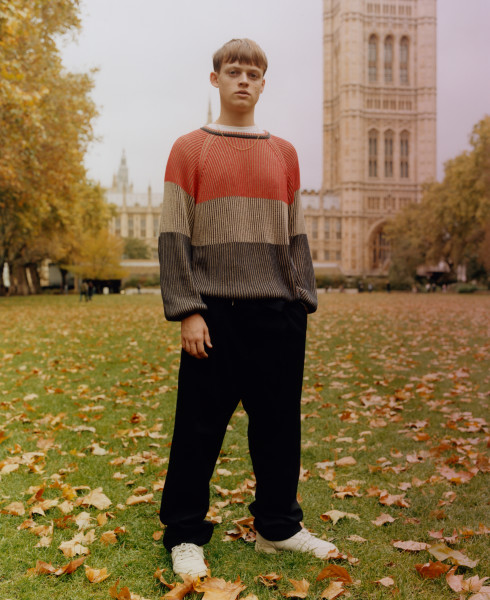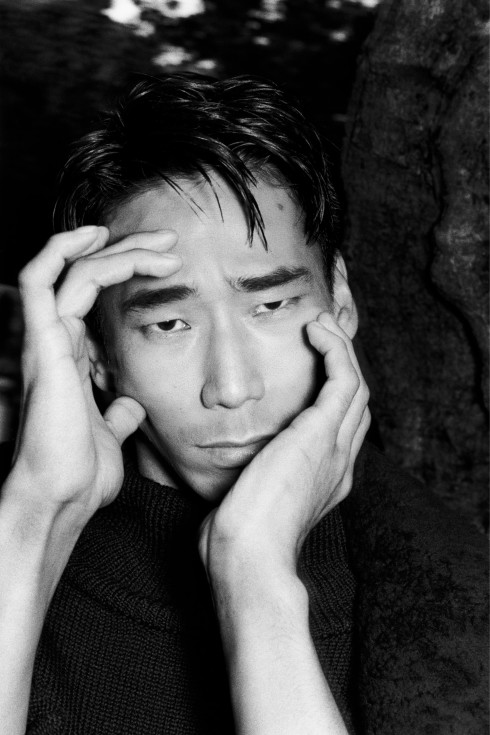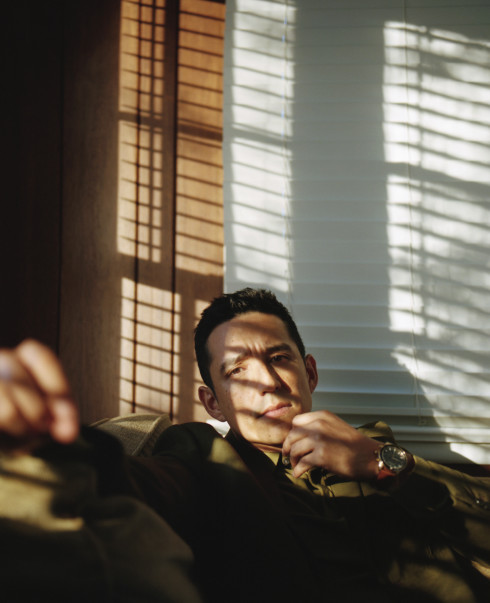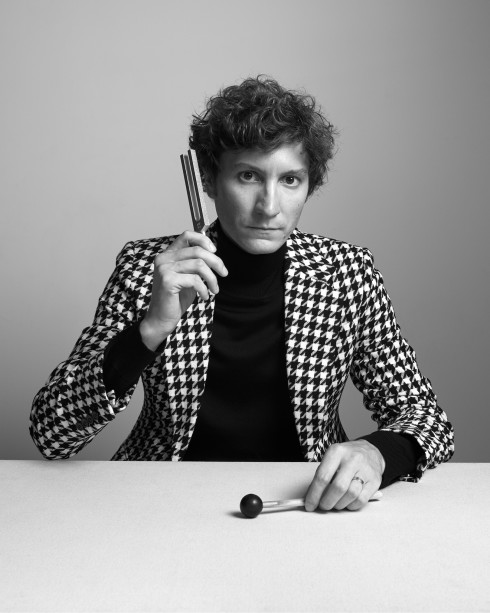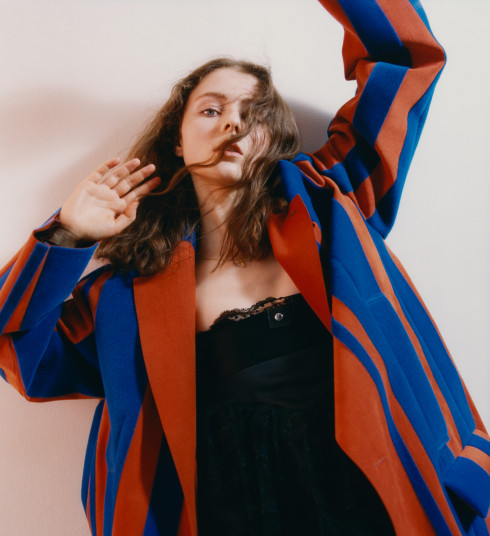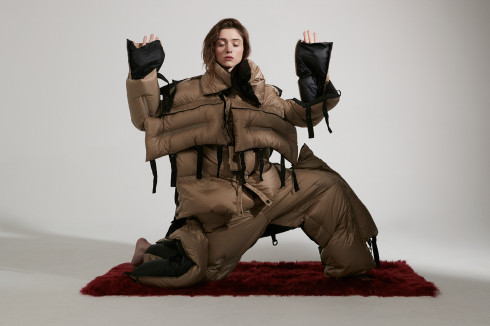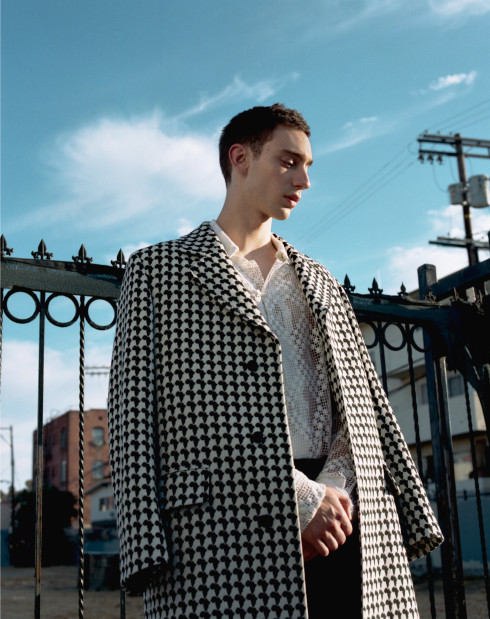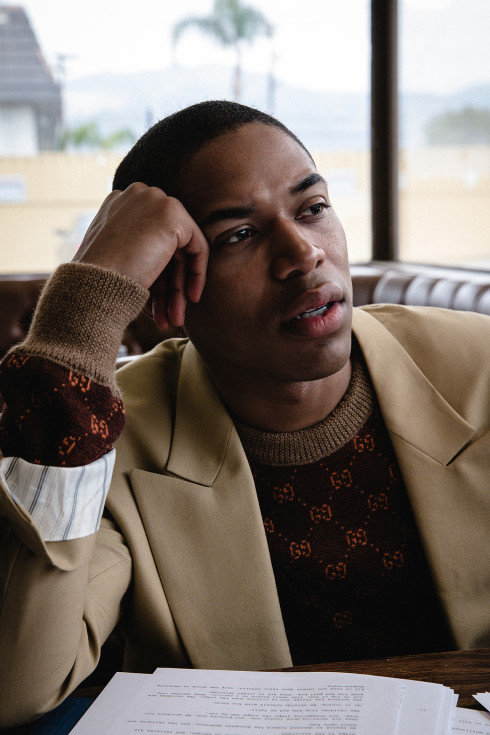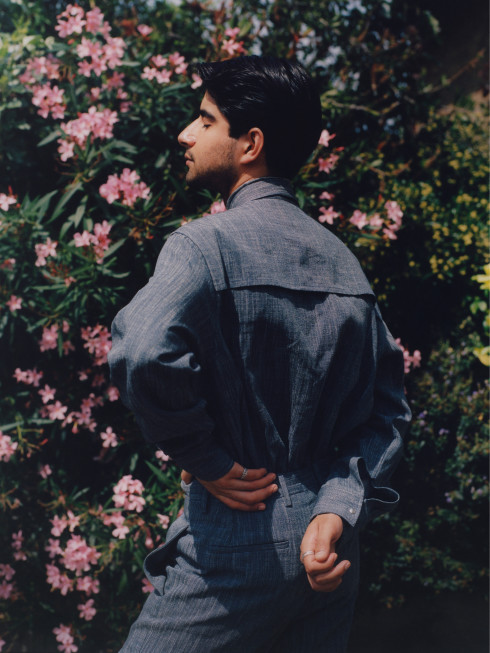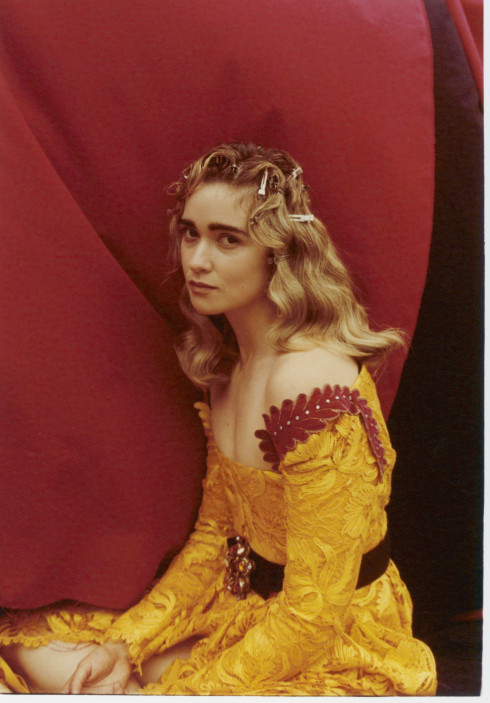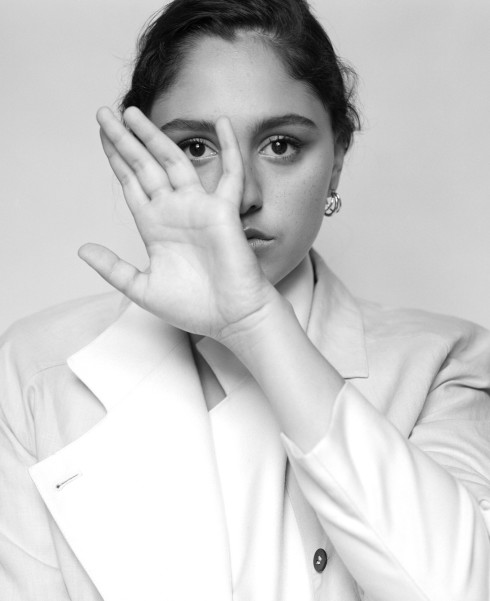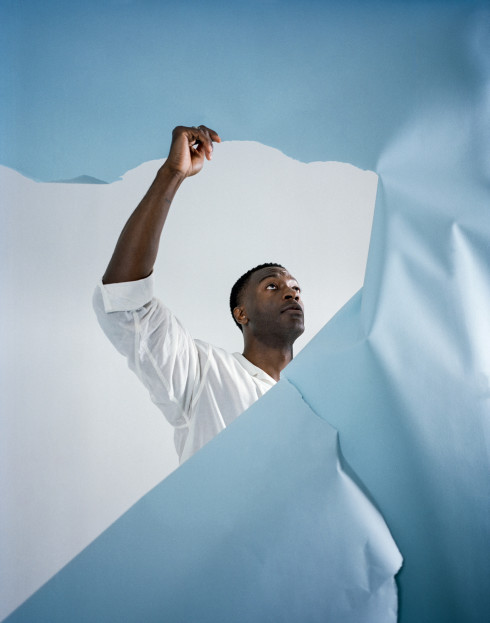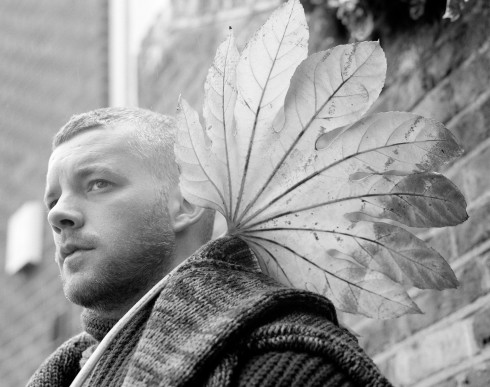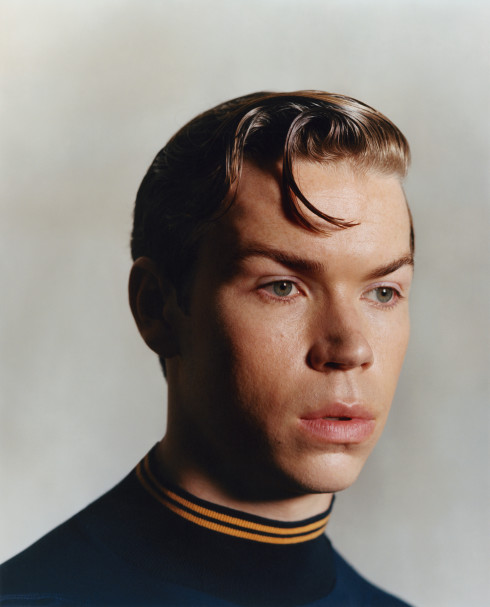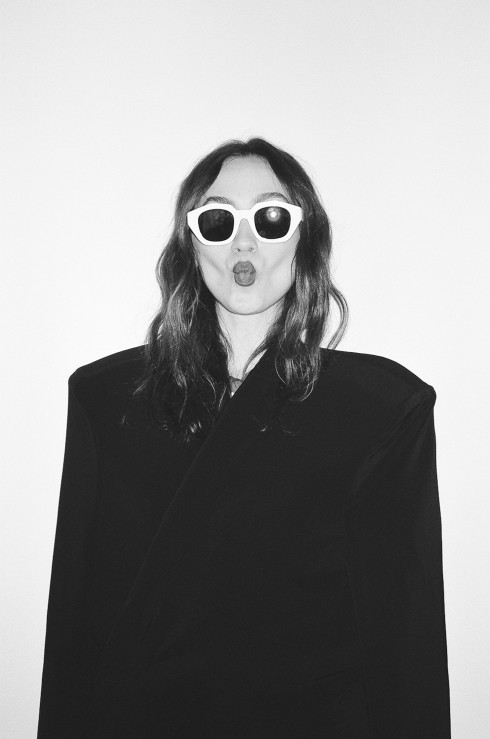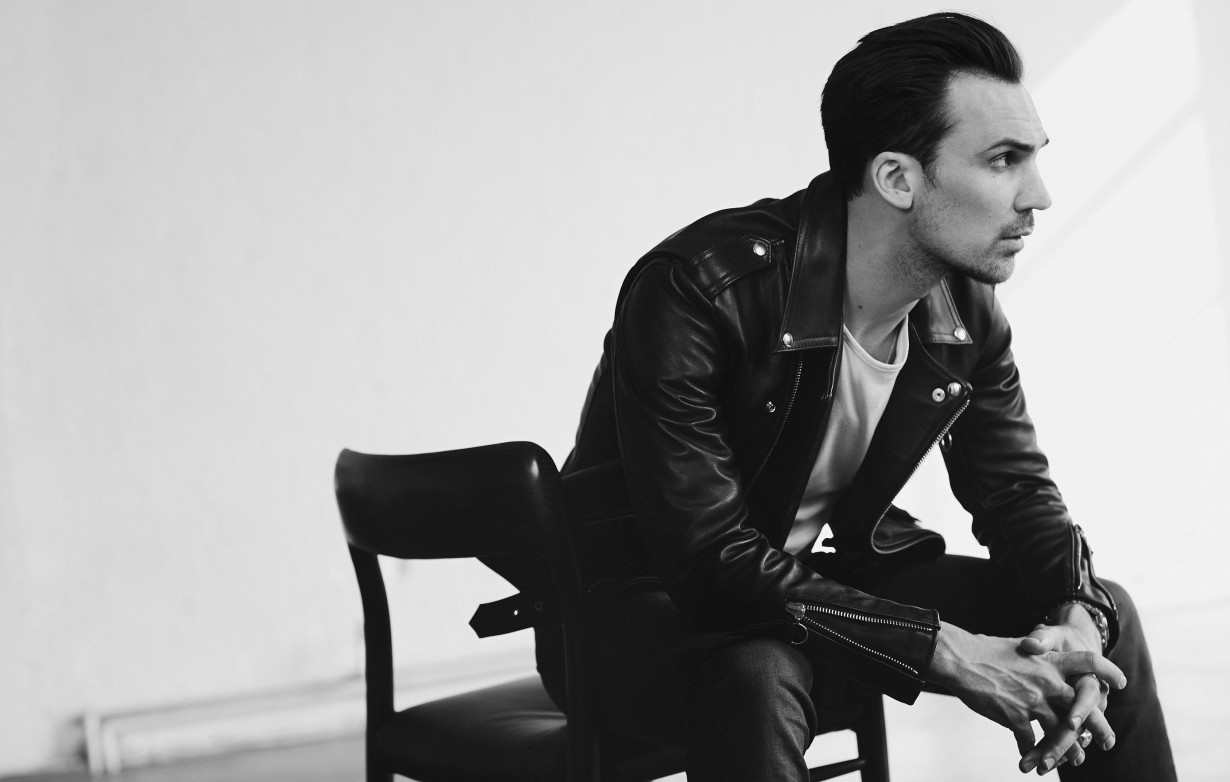
- By
- Jonathan Shia
- Photography by
- Patrick Lindblom
Styling by Jeanie Annan-Lewin. Grooming by Antonio De Luca. Photographer’s assistants: Johanna Lundqvist and Filipe Serralheiro. Digital technician: Daniel Simm.
HENRY LLOYD-HUGHES
Emma Bovary is one of literature’s most famous anti-heroines, an adulteress, spendthrift, and neglectful mother who nonetheless exudes a vitality and vibrancy that make her an enduring icon of the modernist spirit. Her husband Charles, on the other hand, comes across in Flaubert’s novel as little more than a wet blanket, a feeble man who serves as a symbol of all of Emma’s straitened and provincial life. Flaubert’s omniscient narrator takes a pointed glee in sniping at the trivialities of daily existence in small-town France, but he saves his sharpest jibes for Charles, a country doctor who fails again and again to live up to Emma’s expectations.
Charles Bovary might not seem, then, to be a role many actors would jump into eagerly, but that was not the case for Henry Lloyd-Hughes, who plays opposite Mia Wasikowska’s Emma in Sophie Barthes’ new adaptation of Madame Bovary, in theaters this Friday and featuring Ezra Miller as her lover. “Charles is such an interesting challenge because he is someone who in many ways has plenty of appealing features,” Lloyd-Hughes explains, “and yet the central character of the book and the film tires of him so relentlessly. The theme that follows him around is, ‘Why are you still here?’ That was the real challenge as an actor because you’re like, ‘I have to find something appealing in this guy.’ I can’t be thinking, ‘Why are you still here?’”
The key for Lloyd-Hughes—who at twenty-nine recalls being told by local French people he met while filming that he was much too young to play Charles—was finding the middle ground. “I wanted him to be charming,” he recalls, “but never too charming.” Without quite coming whole-heartedly to Charles’ defense, Lloyd-Hughes says that winning over a part of the audience’s sympathies is essential to the film’s frisson of moral conflict. “If you make him grotesque, like a fat guy with a lazy eye, you get Emma off the hook,” he explains, “because you’re like, ‘Of course she’s not going to stay married to this guy, it’s ok that she’s fucking around.’ The movie doesn’t work unless there’s a part of the audience going, ‘Why is she doing this to this nice guy?’ If you have this grotesque, old man whom she is married to, you lose the potency of her rebellion.”
Lloyd-Hughes’ nuanced interpretation of Charles is one of two major projects rethinking important historical moments he is participating in this year. He is also the lead in the drama series Indian Summers, which premiered in his native England this past February and is coming to the United States this September. Set in the waning days of the British Raj in Simla, then the summer capital, the series both slots neatly into and flips about the long tradition of British responses to its long rule of the subcontinent, stretching from Kipling and Forster through Orwell to Gandhi and Heat and Dust.
Indian Summers recasts an historical era through a contemporary lens, and has an original protagonist in Lloyd-Hughes’ Ralph Whelan, a rising government official of British descent who was actually born in India and has spent more of his life there than in England. “He manifests the old Empire,” Lloyd-Hughes says of Ralph, “but what is unique about him is the contrast that exists within himself in terms of his own ties with the country, which are so deep. These two warring things are entwined within him, his love and respect of the country that he almost has to hide sometimes and also his need to get the job done.”
Lloyd-Hughes says he prepared for the role by researching through the archives of the British Library, perusing diaries, event calendars, and sketches to absorb the feel of a time and place full of contradictions and tensions across racial, economic, and gender lines. The series, which finds additional meaning in the quotidian dramas of life through this backdrop, is both reflective of our times and its own. “What is contemporary about it is it’s not judgmental,” Lloyd-Hughes says. “I don’t think it pulls its punches. I feel like there is an authenticity to what the characters are doing which is surprising in its frankness. It does not have, I hope, too much of that ‘soft around the edges’ quality that can make you get lost when you look through the historical lens.”
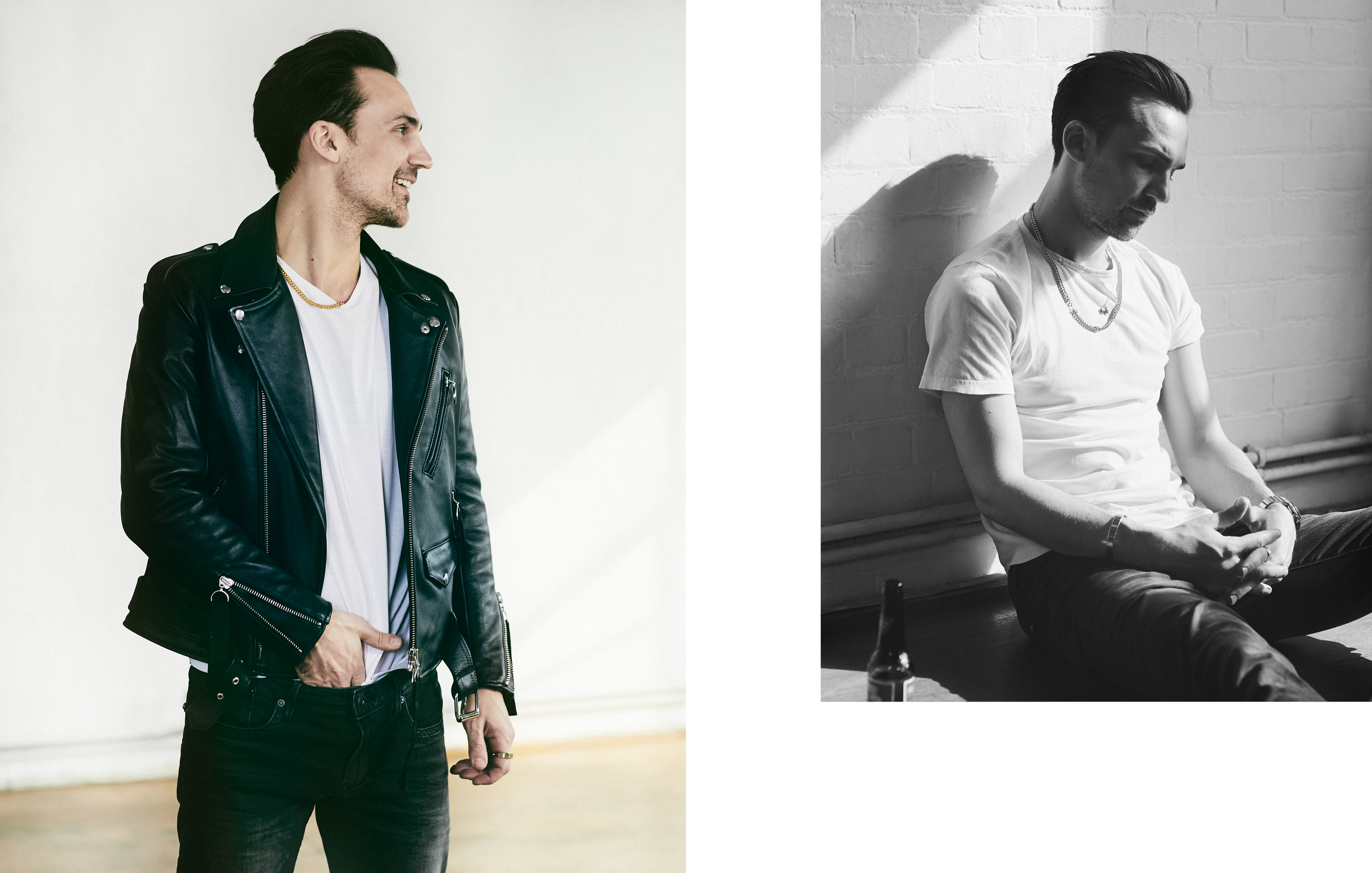
The double punch of Madame Bovary and Indian Summers this year, two period pieces that reach back to distant times, may make it hard to remember that Lloyd-Hughes is, in other ways, very modern. He once sang in a rock band, Adventure Playground, and until recently was probably best known in England for his role as a bully on the beloved British sitcom The Inbetweeners.
Lloyd-Hughes jokingly points to his lack of athletic ability as the start of his acting career. “I was not the sportiest kid or the brainiest kid,” he recalls, “and if I am truly honest, getting up on stage for the first time was the first time someone said that I was good at anything.” He performed in school productions for years before taking the bold step, at seventeen, of sending out letters to agents asking for representation, eventually signing—and staying—with the one he has now.
He admits he wasn’t set on being an actor at that point, though. “Remember Michael Jordan?” he asks. “After he did basketball, he tried to have a baseball career. I definitely had that feeling when I was seventeen. I had this instinct that told me I could do it, but I also wanted to do other things. It could have been different. I couldn’t tried throwing a discus, someone could’ve been like, ‘Hey, that boy can really throw,’ and I would have been throwing the discus for years and we’d be having a completely different conversation.”
To this day, Lloyd-Hughes says he tries to keep the other creative outlets open, whether it means appearing on a West End stage or a podcast, even as his shooting schedule becomes increasingly busy. He recently wrapped a role joining the Now You See Me franchise with Mark Ruffalo, Woody Harrelson, and Jesse Eisenberg for the sequel out next year, and is currently commuting between his home in London and the set of Indian Summers in Malaysia.
For Lloyd-Hughes, the rush of creation is worth all the effort, no matter what form it comes in. “I enjoyed the sense of experimentation and I enjoyed just being in a creative setting, and I suppose when I finally got into a play rehearsal room or a film set and I felt comfortable and alive, I was like, ‘This feeling is what I’d like to have,’” he says. “That is the great elixir, and I’m not particularly loyal to where I find it, whether it is in a film or TV or doing something else, like making music. I’m looking for that moment where I feel comfortable and challenged and firing on all cylinders. That’s the dream.”
Madame Bovary is out Friday. Indian Summers premieres on September 27 on PBS.
- By
- Jonathan Shia
- Photography by
- Patrick Lindblom
Styling by Jeanie Annan-Lewin. Grooming by Antonio De Luca. Photographer’s assistants: Johanna Lundqvist and Filipe Serralheiro. Digital technician: Daniel Simm.
